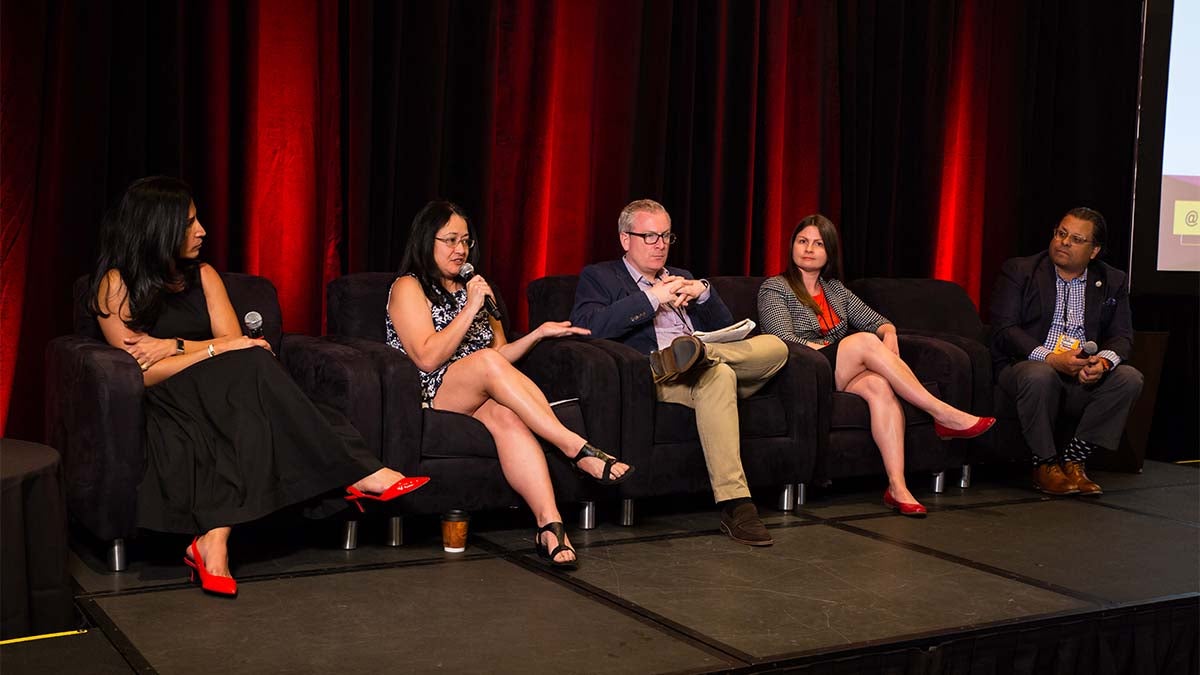Implicit, explicit barriers hampering global sport participation

Whether the issue is cost, race, education or lack of support for girls, implicit and explicit barriers keep people out of sport.

At the March Global Sport Summit in Phoenix, panelists Daniel Burdsey, Mori Taheripour, Vera Lopez and Anastasiya Khomutova sought to tackle those issues.
Burdsey, a Reader and Deputy Head of School Research in the School of Sport and Service Management at the University of Brighton, said he believes a significant barrier affecting sport participation is racism. Burdsey specifically studies the racist treatment of British Asians in soccer.
According to Phys.org, British Asians are not included in professional soccer clubs because they aren’t being scouted in amateur clubs. Many scouts argue British Asians aren’t cut out for soccer because “their traditional game is cricket,” and they are not meant to participate in something as physical as soccer.
Because they have been left out of soccer, Burdsey argues, British Asians cannot challenge cultural and racial stereotypes.
Taheripour, co-founder of the Wharton Sports Business Initiative (WSBI), studies the effects of sports on health and social development. She said she believes a critical barrier affecting sport participation is cost.
Travis Dorsch, a former NFL player and current assistant professor at Utah State University, found that spending on sports has risen. In his research, Dorsch found that 10.5 percent of gross family income is spent on youth sports. This money goes to the rising costs of things like equipment, training and transportation. Rising costs mean more and more youth from low income areas cannot afford to engage in sports. According to The Aspen Institute, children from low income homes are more likely to be physically inactive than kids from better income areas.
Lopez, a member of the School of Social Transformation at Arizona State University, focuses on the underrepresentation of Latina girls in sports. Lopez conducted a study to figure out the barriers causing this underrepresentation.
Lopez found the main barrier holding the girls back is they don’t feel welcome in school-based sports and other physical activity. The girls reported feeling their peers were judging their physical features, making them feel self conscious. In addition, the girls themselves reported feeling self conscious about their bodies and general appearance.
Khomutova, a member of the School of Sport Service Management at the University of Brighton, studies athletes making the transition, specifically, black basketball players in Europe. Khomutova discussed how she found many weren’t educated about the country that they were playing in and its culture.
As a result, they faced extreme difficulty adapting to that place and audience. She found it was hard for them to do simple tasks such as grocery shopping and communicating with the people. She found this also caused tension in the locker rooms. Players isolated themselves from their foreign coaches, leaving coaches with a bad opinion of them.
Despite all of the barriers standing in the way of athletes, all of the panelists agreed solutions exist.
Lopez said she believes using power and privilege can help more Latina girls engage with sports.
Khomutova said she believes education is key. She said athletes need better education about foreign countries in order to adapt to them. Khomutova added coaches need to be better educated about black players. That education can bridge the awkward gap between black players and foreign coaches.
Taheripour argues for the need to invest in good coaches. A coach can teach the game, but Taheripour said a good coach should also have compassion and provide life lessons that help in social development.
Burdsey said change starts with The Football Association’s recognition of past and present exclusion of British Asian soccer players. Until the governing body of association soccer in England recognizes how it treats British Asians, Burdsey argues no progress will be made in the number of British Asians playing soccer.
Katelyn Oates is a sophomore journalism major at Arizona State University

